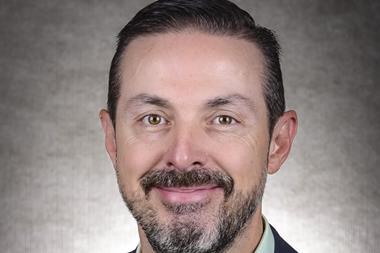On 5 October 1999, shortly after 8:00am, 31 people died in a high speed collision between two trains at Ladbroke Grove, just outside Paddington.
Within an hour British Transport Police and the Health and Safety Executive (HSE) had started investigations. They seized documents and other evidence and demanded information, some of which may have been critically important in the subsequent investigations.
Your company might not operate in such a high profile area, but with the recent increased emphasis on enforcement by the HSE, as well as public concern about workplace deaths, any incident involving the death of an employee, a visitor, or a customer, could leave you facing a major investigation at very short notice.
Are you confident that even out of hours you could immediately obtain expert advice on how to respond to demands made under the very different powers of police officers and HSE inspectors? Have you got a media plan for immediate use? Are you confident that your lawyers and media advisors would be able to co-ordinate their efforts? If not, read on...
Although there were complex technical issues relating to the layout of the track and the visibility of the signals at Ladbroke Grove, the immediate cause of the accident was the failure of Michael Hodder, the Thames Trains' driver, to stop at a red signal. Owing to the seriousness of the accident, the Government ordered Lord Cullen to hold a public inquiry to examine the causes of the collision. The core documentary evidence ran to more than 80 lever arch files. The hearing lasted for 10 weeks. Each interested party was represented by lawyers, the majority of whom worked exclusively on the case for about six months.
Lord Cullen found failings in Thames Trains' management and training of its drivers. As a result, Thames Trains had no real alternative but to plead guilty when charged under Sections 2 and 3 of the Health & Safety at Work Act (HSWA), and it was fined a record £2m. Despite this there was criticism in the press that this fine was inadequate.
Although Thames Trains' insurers paid for the company's legal costs, as well as the civil claims made by those injured in the collision and the families of those who died, the cost to Thames Trains was significant in terms of:
- management time dealing with the prosecution, the civil claims and the public inquiry
- disruption and distraction from the task of continuing to provide a rail service
- additional stress on staff
- the likely increase in insurance premiums
- bad publicity
- loss of customer confidence and the possible loss of customers in the aftermath of the accident.
Corporate manslaughter
If a death has occurred after a major incident, there is the possibility of a police investigation, as well as an HSE investigation. In these cases the police will take primacy, working under a protocol between police, HSE (and other bodies).
Usually the investigation will be considering the possibility of corporate manslaughter charges. For a corporate manslaughter prosecution to succeed it is necessary to identify someone senior enough within the company to be a 'controlling mind', who is individually culpable. If that 'controlling mind' is found guilty he can go to prison and the company will automatically be convicted as a result. While a company can only be fined, in 1999 the Court of Appeal gave guidance that led to a considerable increase in the level of fines for HSWA offences.
Chiefly because of the difficulties of identifying a 'controlling mind', corporate manslaughter prosecutions have rarely succeeded, and then only in the case of small companies. To overcome what campaigners call a loophole, the Government has promised legislation to widen the application of corporate liability for deaths by creating a new offence of corporate killing. It is clear that this proposed new offence will seek to stigmatise companies solely on the outcome of an incident where death occurs, rather than considering the risk actually taken. The offence may not require the risk to have been foreseeable.
Even with the current weaknesses, Network Rail and Balfour Beatty are facing corporate manslaughter charges arising from the Hatfield derailment in 2000. A further investigation into Network Rail is taking place to establish whether corporate manslaughter charges can be brought after Ladbroke Grove. Meanwhile, Barrow Borough Council has been charged with seven counts of manslaughter following a legionella infection of the air conditioning system at a Council run arts complex. The Council's design services manager is regarded as the 'controlling mind', and is facing individual charges of manslaughter.
HSWA charges
If it is concluded that manslaughter charges should not be brought, or if no deaths result from an incident, charges can still be brought under the HSWA. The HSE has been taking a more active stance following major incidents, and is keen to bring prosecutions when it can. As far as companies are concerned, there is a reverse burden of proof. Once a charge has been brought, a company must prove that it did all that was reasonably practicable to avoid the risk. This is almost impossible to prove.
While HSWA charges are usually brought against companies, they can also be brought against individuals. Section 37 applies to the directors, managers and officers of a company. Section 7 applies to employees. The number of cases being brought under Section 37 is increasing.
Although Section 37 charges can only lead to a fine for the individual, managers can face imprisonment if, for example, they fail to observe the requirements set out in an improvement notice, or breach a prohibition notice. Are you confident that you have immediate legal advice to hand which can distinguish between these different kinds of notice?
Significant costs
The costs to a company can be significant if it is prosecuted. In the case of Ladbroke Grove, not only did Thames Trains (and their insurers) have the initial expense of the investigations and the public inquiry, but also the expense of the criminal proceedings. There was serious interruption to Thames Trains' business (and insurers are becoming less keen to insure business interruption where an accident can have such a catastrophic impact).
Thames Trains has to pay the £2m fine itself, as this is not recoverable from insurers as a matter of law. The legal costs would have been significant, and Thames Trains would have had to meet any excess.
In a case where individuals are being prosecuted and there is inadequate directors' and officers' insurance, either the company has to bear the cost, or it will fall to the individual. If claims are made against a number of directors, or they are prosecuted, then each may need separate legal representation at substantial cost. There is also the bad publicity and its effects on a company's clients and staff. The commercial ramifications can be significant.
An important factor which a company should consider is its insurers' stance on the costs of legal advice during a criminal investigation. The extent to which such costs are met will very often rely on the insurers' discretion. Some can be generous; others take the view that the policy wording requires them to meet only defence costs, which start when a company is charged. This will always be far too late; the time to influence an investigation is within minutes of its starting. Prompt action can help to shape the outcome of an investigation and could even influence the decision as to whether a prosecution is brought or not. If a prosecution is brought, appropriate action at an early stage can provide effective mitigation. If its insurers will not meet the costs, a company must decide immediately whether to fund the legal advice it so desperately needs.
Protecting your company
Assuming that your company already takes health and safety responsibility seriously, and actively manages risks, what do you need to do to protect it?
There needs to be a culture of safety throughout the company. The safety policy should be kept under review, and you need to ensure it is actually put into practice. If this is not the case then you need urgent advice.
How can expert lawyers assist you and why should they be closely aligned with your PR advisers? There can be no question of hiding anything. Any attempt to do so could have an adverse effect on a decision to prosecute and is likely to be very damaging in PR terms. What can be done to help you is to assist the investigation into complex issues. Police officers will usually not understand contractual relationships and the duties placed on any party. Surprisingly, even experienced HSE inspectors sometimes have difficulty in identifying the scope of a party's undertaking. They often need to be guided to understand the correct position: how safety was managed, where responsibility lies and how other parties were involved.
Investigators may well not understand the context of documents which they examine, and the company's advisers need to be active in ensuring that the real issues are made clear at the earliest possible stage. If investigators consider documents in isolation they can draw false conclusions.
The job of the lawyers is to ensure that documents are considered in context, and that other relevant evidence is disclosed at the same time.
It can be very important to know what documents the investigators have taken and what questions they are asking. This enables lawyers to identify the lines of enquiry, so that if senior managers are asked to attend interviews under caution, they can help the investigators by ensuring that important underlying issues are addressed, not simply the questions the investigator thinks are relevant. It is important to ensure that investigators obtain relevant evidence that helps a company's case.
You can only deal properly with the aftermath of a disaster if you have planned for it. Most companies have disaster or incident plans, but few have 24 hour access to legal and media experts. It is important to ensure that the plans are developed by people sufficiently senior to capture board attention, and that everyone knows about the plan and is trained to use it in an emergency. The first priority is to assess the gravity of an incident and to call a previously identified group together to manage it. You need to make sure that your insurers, legal and PR advisers are informed at an early stage. Spending money in the early stages of an incident saves money in the long term and can protect a company's reputation.
Clive Fletcher-Wood is a partner, and Alyson Tanner an associate, of Burges Salmon, Tel: 0117 939 2000, E-mails: clive.fletcher-wood@burges-salmon.com alyson.tanner@burges-salmon.com
TUC CRITICISES LAW DELAY
The TUC recently expressed concern at the UK Government's delay in introducing legislation on corporate killing. Speaking at a Centre for Corporate Accountability conference on manslaughter on 29 April, TUC deputy general secretary, Frances O'Grady called on ministers to bring to justice those employers who, through negligence and a callous attitude to health and safety, regularly put the lives of their workers and members of the public at risk.
O'Grady said: "The government promised legislation on corporate manslaughter to make bosses more accountable for their health and safety crimes, but despite proposals published last June, we've seen nothing more.
"So long as there is no Bill on corporate killing, and the fines for safety breaches remain disappointingly low, the message to employers is that workplace safety is not a high government priority. I urge ministers to remove all the stops and introduce legislation now."



















